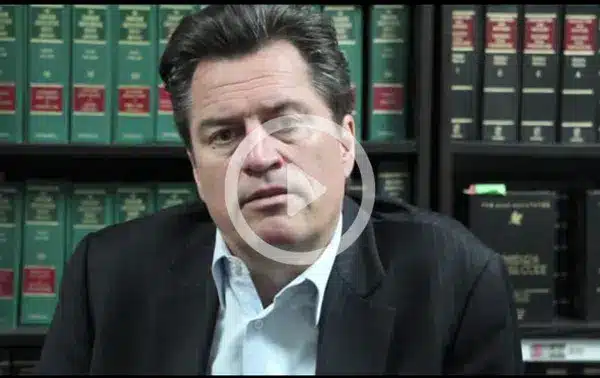Vehicle Offence Lawyer in Toronto
We will defend you against any criminal charges arising from a motor vehicle accident or violation of the Criminal Code. I will make sure you understand what is happening in court so that you don’t feel overwhelmed or left out of decisions. If a criminal charge arises out of a motor vehicle accident or violation of the Criminal Code we will provide all necessary legal advice to successfully defend your case at trial or on appeal.
Get your free consultation today - we're here to help.
SPEAK WITH A LAWYER NOW
Schedule a free vehicle offence case review
Vehicle and Traffic Offences
If convicted, these charges can drastically affect one’s life and career. These charges are recorded on a driving record that potential employers and insurance agencies can assess. A simple traffic offence can have lifetime consequences – get the representation that cares.
Moreover, charges can lead to demerit points that can have your license revoked.
The Most Common Offences Under the HTA
Vehicle offences are usually charges given by police officers for violating the Highway Traffic Act (HTA) or the Criminal Code of Canada.
- Distracted driving
- Careless driving
- Failure to signal
- Fail to remain (hit and run)
- Use of handheld device while driving
- Driving without license or insurance
- Running stop signs and traffic lights
- Police pursuit
- Dangerous driving
- Impaired driving

When convicted of driving above 15 km per hour in Canada, points will automatically be added to your driving record. These will remain on your record for two years, and your license may be taken away if you accumulate too many points. It is important to remember that your record will always start with zero points, so any points gained will be due to breaking specific traffic laws.
The repercussions can be long-lasting and far-reaching if found guilty of a traffic violation. The conviction will be noted on your driving record, which potential employers or insurance providers could access. A single offence could have a lifetime of consequences, so ensure you get the legal help you need. Furthermore, certain violations can result in the accrual of demerit points, which can lead to the suspension or cancellation of your driver’s license.
Common Offences
Vehicle offences are legal charges for breaking the law while driving on public roads. This includes actions such as
Speeding
Not obeying traffic signals
Not having valid insurance
Driving while impaired
In some cases, these charges can also include more serious offences such as dangerous driving and street racing.
Breaking the Highway Traffic Act can lead to serious repercussions. If an individual is found guilty, they could face jail time, hefty fines, and even restrictions on their driver’s licence. This can be particularly problematic for those who rely on driving for their job, as their premiums may skyrocket, and they could lose their ability to work.
Each penalty varies on the number of convictions and type of charge.
For instance, the driver is subject to a fine from $490 to $1000 and three demerit points for distracted driving. For careless driving, a driver may receive six demerit points, fine of up to $2000, six months imprisonment, or two years of license suspension.
Regardless of the penalty, having charges like the ones above can negatively impact your life.
Consequences
Charges laid under the criminal code for dangerous driving can lead to imprisonment for up to 10 to 14 years maximum if the dangerous driving causing bodily harm or death.
The criminal law can punish dangerous driving that results in bodily harm or death with a possible jail sentence of up to 10 to 14 years.
A fine amounting between $400 and $2000.
Incarceration for up to 6 months if they commit a crime.
Demerit points, which, when accumulated, can result in penalties such as fines, license suspensions, or other consequences.
License suspension can occur for various reasons, including failing to pay fines or traffic tickets or due to a medical condition affecting your ability to drive safely.
Call on Calvin Barry Immediately
If you’ve been charged with violating the Highway Traffic Act, it’s wise to consult with a criminal defence lawyer. At Calvin Barry’s office, we are dedicated to helping you fight for the best possible outcome for your case. Our team has an outstanding record of successfully defending clients charged with Highway Traffic Act offences.
I will provide legal assistance if you are charged with a crime related to a motor vehicle accident or criminal charge. I will ensure you understand the legal process to feel safe and clear. I will provide all necessary advice and support to help you defend your case in court or on appeal.
Please call me at 416-924-5969 to schedule a consultation.
10 FAQs about Vehicle Offence
1. What types of vehicle offences can I be charged with in Canada?
In Canada, you can be charged with various vehicle offences, including distracted driving, careless driving, failure to signal, hit and run, and driving without a license or insurance. If you’re facing any of these charges, it’s important to get legal advice tailored to your situation. Request a free consultation to discuss your case.
2. What are the consequences of vehicle offences on my driving record?
Convictions for vehicle offences can lead to demerit points, fines, and even license suspension. These can have a significant impact on your driving privileges and insurance rates. To understand the potential consequences and explore your legal options, fill out our form for a case review.
3. How can a lawyer help me if I'm charged with a vehicle offence?
4. Can I fight a traffic ticket and win in Canada?
Yes, it’s possible to contest a traffic ticket and win. The success of your case will depend on the circumstances and evidence. For a thorough evaluation and to increase your chances of a favorable outcome, reach out for legal advice.
5. What should I do if I'm accused of a hit and run?
If you’re accused of a hit and run, it’s critical to seek legal representation immediately. Our experienced lawyers can guide you through the process and defend your rights. Get in touch with us right away.
6. How serious are charges for driving without insurance in Canada?
Driving without insurance is a serious offence that can result in hefty fines and impoundment of your vehicle. To avoid these severe penalties, schedule a free consultation with our legal team.
7. What defences are available for a careless driving charge?
Defences for careless driving may include proving that your driving was not careless or that there was a justifiable reason for your actions. Each case is unique, so personalized legal advice is essential. Contact us for a free case review to explore your defence options.
8. If I'm charged with a vehicle offence, will I automatically lose my license?
License suspension is not automatic but can be a consequence of certain vehicle offences, especially if demerit points are involved. To protect your driving privileges, seek legal representation immediately.
9. What impact do vehicle offences have on my insurance premiums?
Vehicle offences can significantly increase your insurance premiums. To mitigate these effects, it’s important to have a strong legal defence. Let’s discuss how we can support you.
10. Why should I choose your firm to represent me for my vehicle offence case?
Our firm has a proven track record of successfully defending clients against vehicle offences. We’re dedicated to providing personalized legal strategies to achieve the best possible results. Contact us today to see how we can help you.
Client Reviews
Our clients praise us for our outstanding results, personable service and expert knowledge. Here are a couple of things some of them had to say:
Thank you!
Read Our News & Blog Content
Latest News – Toronto’s source for criminal law updates, alerts, news and analysis from leading lawyers in the field.

Consequences of Refusing or Failing DUI Sample in Canada
Drinking and driving is a serious offence in Canada. The Criminal Code of Canada has strict laws in place to prevent individuals from operating a vehicle while impaired. One of the ways to determine whether a driver is impaired is

Concerning Drinking And Driving Statistics In Canada For 2022 (Part 2 Of 3)
Drinking and driving issues are Canada’s most significant contributors to public health and safety problems. This shows that drunk driving and impaired driving do not pick a place and time and that they are ongoing social problems that need to

Concerning Drinking And Driving Statistics In Canada For 2022 (Part 1 Of 3)
Unfortunately, deaths and accidents caused by drinking and driving continue to be a major public safety issue in Canada. These violent deaths cause immense pain for many families, often more than the combined number of hostage situations, armed robberies, and
Contact Calvin Barry Today.
Contact an experienced criminal defence lawyer in Toronto to fight for your case.